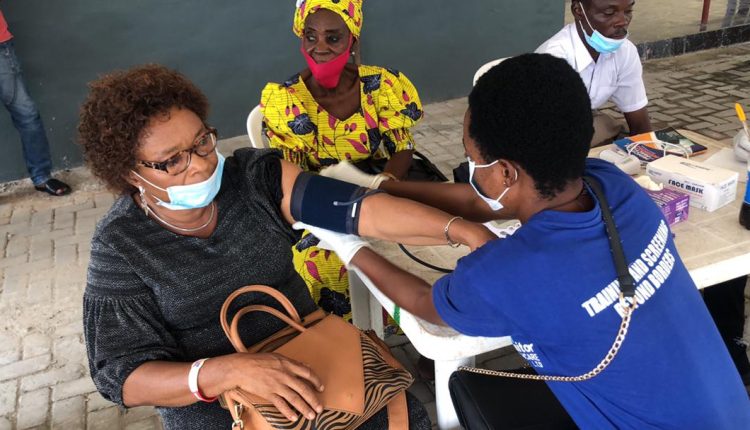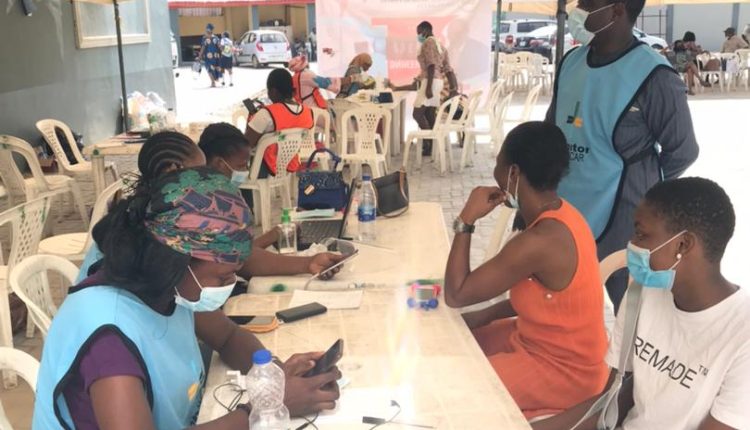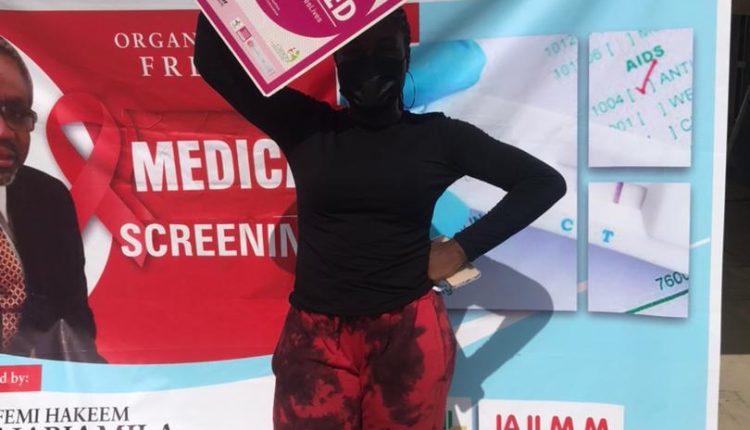By Oghoghomena Adediran
For the 2021 breast cancer awareness month, Speaker of the House of Representatives, Femi Gbajabiamila, has facilitated a free medical screening programme in Surulere Constituency, Lagos.

The free medical screening programme is being undertaken by the Federal Medical Centre, Ebute-Metta, and holds at the Ultra-Modern Primary Healthcare Centre on Akerele in Surulere, Lagos.
Globally, October is set aside as breast cancer awareness month.
A World Health Organisation report (WHO,2021), indicates that in 2020, there were 2.26 million cases of breast cancer, making it currently the most common cancer among women, both in developing and developed countries.

The WHO report also states that breast cancer was identified as 23% of all cancer cases and approximately 18% of cancer deaths, while cervical cancer is the fourth most common cancer in women, with records of about 311,000 deaths of the 570,000 women who were screened.

Speaking on the medical screening in Surulere, Coordinator of the programme, Dr. Femi Ogunremi, CEO, Monitor Healthcare Limited, explained that the essence of the free medical screening was to promote breast and cervical cancer screening as well as cardiovascular screening.
He said: “We’ve been here for the past six days, and we have screened close to a thousand people, and it is still on-going. What we’re doing here is to enlighten people about breast and cervical cancer testing and then cardiovascular screening.
“The procedure involves people coming in to receive a lecture that is an advocacy pitch and then proceed to various stages of medical screening. The first stage is getting their blood pressure, pulse and body temperature checked. The next stage is getting an HIV test.”
He highlighted that counsellors were on site to provide guidance for people who test positive and that such people were referred for treatment.
“After getting the HIV test done, people move on to get their BMI (Body Mass Index) calculated and are offered advice on their weight and other habits to learn how it impacts health.
“The breast cancer and cervical cancer screening are available for those willing to get tested. Clinical Breast Examination is done to check for abnormalities in the breast as well as the Clinical Breast Illumination to check for cancerous lumps in the breast, using a portable device called Breast-i.
The free screening programme ends on Wednesday, 13th October. And the figures of positive/negative results will be released later,” Dr. Ogunremi said.
He advised on the importance of early detection, calling it ‘a key to life” just as he talked about the difference in trends of breast cancer deaths among White and Black women.
“In Nigeria today, if we look at the next 10 people diagnosed with breast or cervical cancer and we follow them for the next five years, only one or two of them will be alive. In the UK, the next 10 patients diagnosed, if we follow them for the next five years, eight or nine of them will be alive. That is the figure across all developed countries.
“People you’re picking in the UK, you pick them through the process of screening that we’re doing here; meaning that there’s no (symptomatic) problem with the organs — breast or cervix, you’re just checking and then you pick whatever problem is very early. So early detection is life and is key.
“For cancer, one cell becomes abnormal, becomes two (cells), hundred, thousands, millions — that’s how it grows. And those cells are terrible, they’re vicious cells; they then filter their way into other cells that are around them — they harass them until they get into the lymphatic where they then spread to other parts of the body.
“In Africa, in developing countries, we don’t care. Someone will have it, there’s no structured screening process, they just have this problem and they continue to nurse it, continue to pray about it, they continue to put herbs on it.
“They do all these things until they see symptoms — symptoms such as jaundice, headaches, mental problems. That’s when we’re picking these people or when the breast itself — if it’s the breast—, there’s discharge. So, that time they feel the need to see a doctor. At that time it’s too late, and such person won’t last five years.”
He advised on the importance of the Nigerian society to build a culture of getting medical screening tests, in order to stop ‘avoidable’ deaths.

